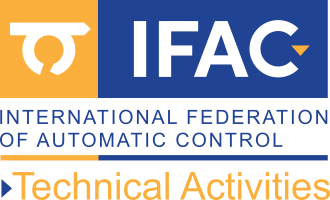Welcome Message
VISION of TC 4.1
The IFAC Technical Committee 4.1 envisions a future where control systems seamlessly integrate cyber, physical, and human components to enable resilient, adaptive, and trustworthy systems. Anticipating the evolution toward Cyber-Physical-Human Systems, our mission is to advance the theory, design, and implementation of control architectures that embed human-in-the-loop intelligence, leverage AI and data-driven methods, enable interoperability and scalability, promote sustainability and societal impact. Through collaboration with other communities, TC 4.1 aims to shape the next generation of control systems that are not only technically sound but also human-centric, secure, and socially responsible.
SCOPE of TC 4.1
TC 4.1 is concerned with complex cyber physical human machine systems where human factors and tight human machine interaction/coupling play a significant or indispensable role as an integral component. The TC 4.1 key topics may include, but not limited to:
- decision making and cognitive processes
- modeling, analysis, assessment, optimization and regulation of human performance (reliability, resilience, mental workload, situation awareness)
- human and organizational factors in Industry 4.0
- applied, virtual, or augmented environments
- design, analysis and performance evaluation methodology
- task or functional allocation
- intelligent or adaptive human-machine interfaces
- human operator support and functional state assessment
- job design and work organization
- human operator selection and training
- human-machine interaction (HMI)
- cognitive human-machine systems
- human-computer interaction (HCI)
- human-machine symbiosis
- brain-machine interaction
- brain-computer interface
- brain-computer interaction
- human-automation interaction
- human-robot interaction
- human-AI interaction
- human-systems integration
- neuroergonomics
- neurocomputing and psychophysiological computing
- natural cognition
- adaptive automation (or adjustable autonomy)
- adaptive aiding/assistance
- social, ethical and legal implications/impacts of complex HMS

